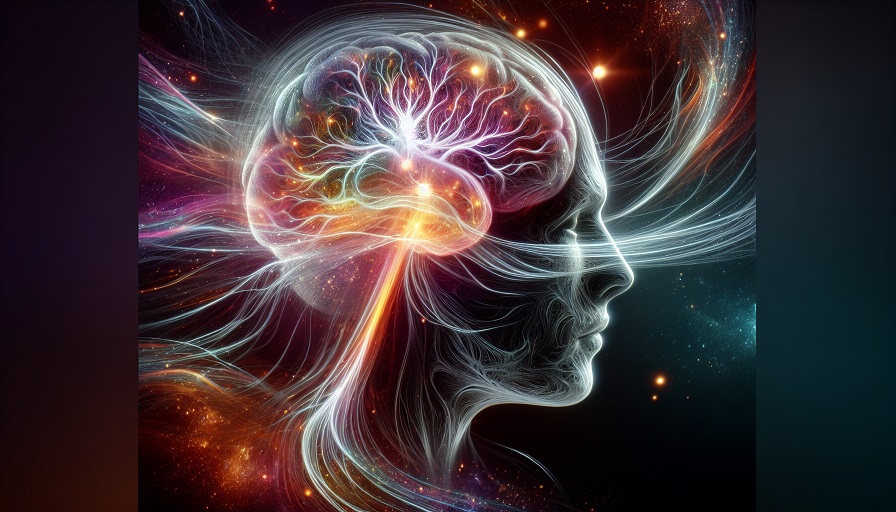
Let’s start with the obvious: attention disorders are real. ADHD is a legitimate, often life-altering condition that affects millions of people. But here’s the uncomfortable question – what if some of the symptoms you’re blaming on ADHD are actually just signs your brain is running on empty?
In a culture where distraction is everywhere and fast food qualifies as dinner, we’ve normalized mental fog, poor focus, and impulsivity. And when our brains don’t work the way we want them to, the first conclusion isn’t, “Maybe I’m undernourished.” It’s, “Maybe I have ADHD.”
The result? A surge in self-diagnosis, TikTok therapists, and an over-reliance on labels. But before you label your brain as broken, it’s worth asking a better question: what if it’s just starving for the right fuel?
Contents
The Overdiagnosis Era
To be clear, some people genuinely have ADHD. This article isn’t about them. It’s about the growing number of people – especially adults – who see a few TikToks, recognize themselves in a list of vague symptoms, and decide they must be neurodivergent.
Difficulty focusing? Welcome to the age of smartphones. Forgetful? That’s what happens when your sleep is trash and your brain is overloaded. Can’t finish tasks? That’s not always pathology – it might be fatigue, distraction, stress, or nutritional depletion.
We’ve created a culture where the normal friction of modern life is medicalized, and the subtle breakdown of cognitive function is treated as a disorder instead of a deficiency. The problem isn’t that people are broken. It’s that their brains are under-supported and overexposed.
Your Brain on Low Power Mode
Here’s what most people don’t realize: your brain is an energy hog. It uses up to 20% of your body’s total energy, and it’s incredibly sensitive to what you feed it. If you’re living on processed food, skipping meals, or lacking key nutrients, your brain will let you know.
Signs of poor brain nutrition can look suspiciously like ADHD:
- Inattention – Often linked to blood sugar instability or dopamine imbalances.
- Restlessness – Could be anxiety, overstimulation, or a magnesium deficiency.
- Forgetfulness – May stem from poor sleep or low B vitamin levels.
- Impulsivity – Can be tied to stress hormones and poor prefrontal cortex function.
None of this means ADHD isn’t real. But it does mean you should rule out the basics before jumping to conclusions. Just like you wouldn’t diagnose a car problem without checking the fuel tank, you shouldn’t diagnose a brain problem without checking the inputs.
The Nutrient-Focus Connection
Nutrient deficiencies don’t just affect your body – they mess with your mind. A few of the most important brain-boosting nutrients include:
- Omega-3 fatty acids: Essential for brain cell structure and communication.
- Magnesium: Critical for calming the nervous system and supporting neurotransmitter function.
- B-complex vitamins: Vital for energy production and cognitive clarity.
- Iron and zinc: Play key roles in attention, memory, and executive function.
- Choline: Needed for the production of acetylcholine, a neurotransmitter involved in learning and memory.
If you’re lacking these nutrients, it’s no wonder your focus is scattered and your brain feels foggy. It’s not that you’re lazy or defective. You might just be undernourished.
Supplements That Support Cognitive Function
This is where high-quality brain supplements, also known as nootropics, can provide real support. They’re not a substitute for healthy habits – but they can help fill in the gaps, especially when your lifestyle is demanding or your diet isn’t perfect.
Nootropics like those in Mind Lab Pro combine evidence-based ingredients designed to support attention, memory, and focus. Citicoline supports dopamine levels and executive function. Bacopa Monnieri aids memory and learning. Lion’s Mane Mushroom supports nerve growth factor and long-term brain health. These aren’t stimulants – they’re building blocks.
The goal isn’t to “fix” your brain. It’s to give it the nutrients it needs to function properly. When your mental circuits are supported, you may find that many of your “ADHD symptoms” start to fade – no diagnosis required.
Behavior Still Matters
Let’s also be honest: modern life trains us to be distracted. Constant alerts, infinite scroll, and digital multitasking make it harder than ever to sustain attention. Even a well-nourished brain can struggle in that environment.
That means behavior matters. If you’re bouncing between five apps while trying to finish an email, your focus isn’t broken – it’s being hijacked. Combine that with poor sleep, a junk-food diet, and no real downtime, and of course your brain is going to scream for help.
The solution is layered: nourish your body, support your brain, and create an environment where focus is possible. You don’t need a label – you need a strategy.
If you’ve ever wondered, “Do I have ADHD?” – you’re not alone. But before you jump into a diagnosis, pause and ask a simpler question: “Am I giving my brain what it needs to work well?”
Sometimes, the answer to mental chaos isn’t medication or self-diagnosis – it’s nutrition, rest, and targeted cognitive support. You might not need a label. You might just need better fuel. Because when your brain is nourished, focus doesn’t feel like a battle – it feels like a baseline.

